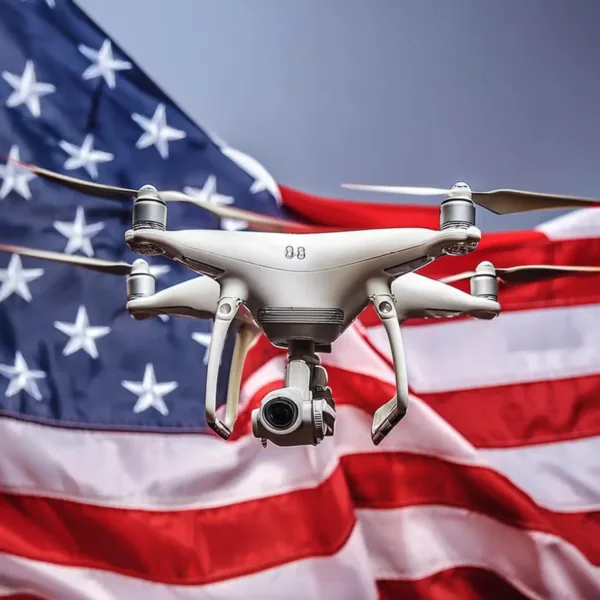
An article by Dronelife shares former Red Cat COO Allan Evans advocates for CHIPS Act-style incentives to accelerate domestic drone manufacturing and reduce reliance on Chinese technology.
As the U.S. government considers taking steps to limit the importation of Chinese-manufactured drones, it should also consider passing legislation that would incentivize domestic drone producers to innovate their products, the former Chief Operating Officer of American drone company Red Cat Holdings said in an interview.
“I think that as the U.S. government goes toward eliminating being able to import (China’s) DJI from the marketplace, without some additional offset to accelerate or jumpstart domestic manufacturing, you’ll see it take a very long time and require more investment down the road to get us to parity,” said Allan Evans.
Evans, who is currently the CEO of aviation component manufacturing company Unusual Machines, said he thinks that in order to help the domestic drone industry Congress should pass a law similar to the CHIPS Act, which provides incentives to U.S. microchip makers.
In 2022, citing national security fears, U.S. regulators banned the sale and import of new communications equipment from Chinese technology companies, including Huawei and ZTE. That same year, Congress also passed the Creating Helpful Incentives to Produce Semiconductors (CHIPS) and Science Act, which allocated $53 billion in federal incentives for domestic semiconductor research, development and manufacturing.
Currently, Congress is considering several pieces of legislation meant to limit or curtail the importation of drones manufactured in China, such as the Countering CCP Drones Act and the Drones for First Responders Act, both introduced by Rep. Elise Stefanik (R.-New York). The Countering CCP Drones Act place equipment and services produced by DJI Technologies on a Federal Communications list of things deemed to pose an unacceptable risk to U.S. national security.
The Drones for First Responders Act would implement a new tariff on Chinese-produced drones and use the tariff revenue to establish a new grant program to help first responders, critical infrastructure providers and farmers purchase new non-Chinese drones.
Drones: A Critical Technology
“Both sides, the Republicans and Democrats, have identified drones as a critical technology,” Evans said.
Soaring to new heights, together.
Be sure to visit the BWU Technology Partnerships Initiative website to learn more about how our NEOFIX program drives economic growth, promotes policy and infrastructure to improve drone safety and efficiency in various industries, and ensures that drone technology is being used responsibly.

